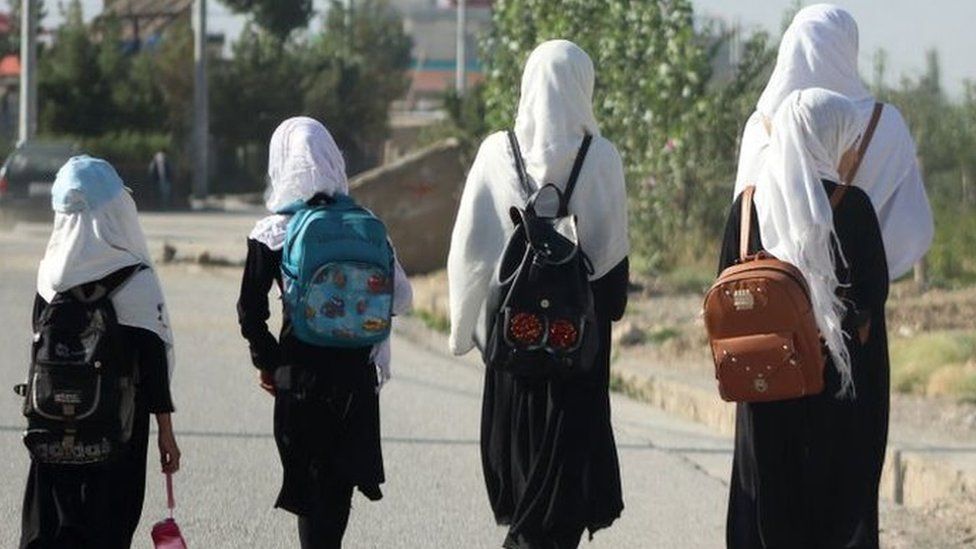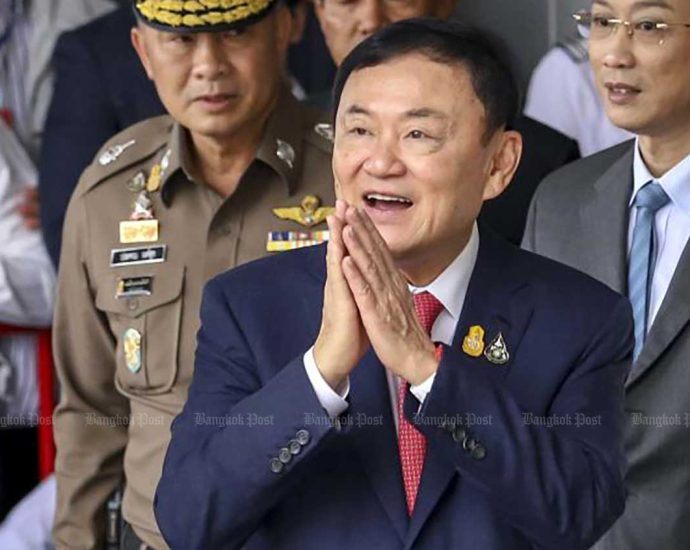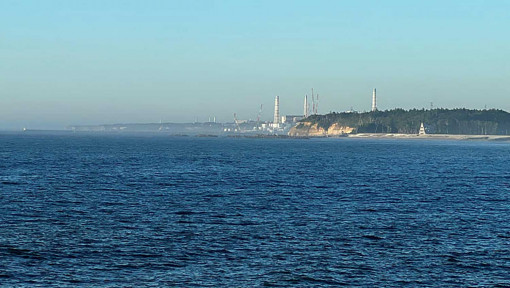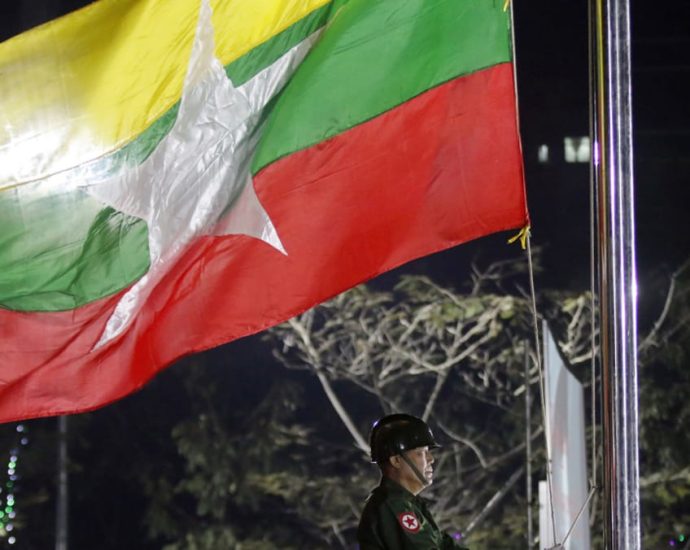US policy toward China: three doâs and a donât
Is war between the United States and China inevitable? This was the central question asked of panelists at the opening session of this year’s Asia-Pacific Roundtable in Kuala Lumpur. My answer was “No, it is not inevitable, but it is no longer unimaginable or as unlikely as it was a few short years ago, and the trends are going in the wrong direction.”
In the United States, there is growing bipartisan consensus on the need to be tougher on China and the upcoming presidential election season will make it difficult, if not impossible, for President Biden to appear soft in the face of Chinese provocation.
Chinese assertiveness toward Taiwan and most recently toward the Philippines, a formal US treaty ally, increases the prospects of an accidental (or deliberate) act spiraling out of control. Taiwan presidential election politics, and Beijing’s perceptions of its implications, add uncertainty.
As the People’s Liberation Army (PLA) improves its capabilities to the point that it believes it is capable of taking Taiwan by force — I don’t think the PLA is there yet but more important is the PLA’s, or more accurately, Xi Jinping’s assessment of where they are — the possibility of PRC military action against Taiwan grows. So, tensions are unlikely to subside or the prospects of direct conflict will remain.
Let me stress that I don’t believe either side is looking for a fight. I have described US China policy as involving four “Cs,” which I have further described as “three dos and a don’t.” The three dos are cooperate whenever possible, compete where appropriate, and confront when necessary. The fourth C, the don’t, is to avoid direct conflict until or unless it is thrust upon us.
The three C’s have been the essential elements of US China policy for decades. What’s changed has been the degree of emphasis behind each. Over a decade ago, the Obama administration, at least initially, stressed cooperation; it offered an outstretched hand to those who would unclench their fist. Today, the emphasis is on competition and confrontation. I can sum up the reason for the change in two words, and they are NOT Donald Trump.
President Trump pursued some policies, and adopted some approaches, that made matters worse, or at least more difficult. But, while Trump’s bedside manner may have been harsh, his diagnosis and prescription were correct: China has been gaming the system and has failed to honor its World Trade Organization commitments. What was (and remains) missing can be summed up in a single word: reciprocity.
Meanwhile, my two-word description explaining the US change in emphasis is “Xi Jinping.”
President Obama started with the right policy, but for the wrong China. His policy fit a China still governed by Deng Xiaoping Thought. China has abandoned Deng Xiaoping Thought. “Hide your strength and bide your time” has been replaced by “Wolf Warriors,” who remind China’s neighbors that China is a big country and they’re not.
Collective leadership and term/age limits to prevent another Mao have been replaced by the new Mao, who has de facto made himself “emperor for life.” State-owned enterprises have been revitalized rather than phased out. It doesn’t matter if the cat is black or white, as long as it subscribes to Xi Jinping Thought.

To get rich is no longer glorious; it now results in a target being painted on your back. And “one country, two systems,” along with the legally binding international treaty that was supposed to ensure basic freedoms of the people of Hong Kong, is now null and void, a “scrap of paper,” as described by Beijing.
The odds of the people of Taiwan accepting such a formulation are now somewhat less than zero. Meanwhile, Taiwan Strait centerline agreements, aimed at preventing accidental conflict, have been rendered moot given near-daily PLA Air Force violations, not to mention missile and drone overflights of Taiwan-held territory.
PRC colleagues see things differently, of course. From Beijing’s perspective, Washington is the source of all problems. While I could easily draw up a list of what Washington should do better or differently, Chinese colleagues find themselves unable, or at least unwilling, to identify Chinese actions that are problematic. To do so would imply criticism of Xi Jinping, which would not be career-enhancing.
It’s difficult to find solutions if you cannot recognize that Chinese actions are a major part of the problem.
One case in point: China created man-made islands on top of disputed low-tide elevation reefs in the South China Sea and then illegally, by almost everyone’s interpretation of international law, declared 12-mile limits around them and warned ships and aircraft to stay away.
The United States (among others), intent on “flying and sailing anywhere allowed by international law,” refuses to comply.
My Chinese colleagues tell me that US freedom-of-navigation operations are the source of the problem, even though the root cause is Chinese territorial claims related to these illegal islands, which have been heavily fortified despite President Xi looking President Obama in the eye and telling him they would not be militarized.

Conference organizers asked if cooperation on common interests could survive further bifurcation. Washington hopes so, hence the visit to Beijing of John Kerry, the US Special Presidential Envoy for Climate, and Janet Yellen, the US Secretary of the Treasury, to talk about the broader economic relationship.
Still, despite a mutual desire for peace and security on the Korean Peninsula, Beijing refuses to take firm measures against Pyongyang as it repeatedly violates legally binding United Nations Security Council resolutions.
And, despite its professed commitment to non-interference, respect for sovereignty and no-first-use or threatened use of nuclear weapons, Beijing refuses to condemn Vladimir Putin’s “special military operation” (which everyone else calls an invasion and act of war), while continuing to profess a “no limits” relationship.
Beijing also continues to reject military-to-military talks, essential to guard against accidental conflict, as well as US proposals for strategic nuclear discussions. Bifurcation seems well underway, despite Washington’s willingness, even eagerness, to talk.
The final question was “how can regional states navigate around these tensions?” The answer is “very carefully.”
Countries will do what’s in their perceived national interests. But they should ask themselves: If they fail to condemn the blatant Russian violation of Ukraine’s territorial sovereignty, what signal are they sending to other potential violators? Maps from the time of Peter the Great show Ukraine as part of the Russian Empire. All Central Asia, the so-called “Stans,” likewise were controlled by the Czars. Are they next?
Meanwhile, how different are Russian claims of sovereignty over Ukraine — not a “real country” according to Putin — from Chinese claims about nine dotted lines and the South China Sea?
Speaking of which, how many more decades will it take to develop a South China Sea Code of Conduct? Which countries are supporting ASEAN efforts to return democracy to Myanmar as opposed to empowering and arming the junta? If China follows Moscow’s example and tries to take Taiwan by force, what happens next? (Check the Pacific Forum website for an answer to the “If Taiwan Falls” question.)
The central question that should be asked today is: What’s more threatening to regional security over the long run, Washington’s “Cold War Mentality” (as Beijing defines US attempts to revitalize and strengthen its defensive alliances and partnerships) or Beijing’s “Middle Kingdom Mentality,” as exemplified by its Wolf Warrior diplomacy, economic coercion, and occasional diplomatic hostage-taking?
Neighbors should keep this question in mind as they figure out how to navigate these troubled waters.
Ralph Cossa ([email protected]) is WSD-Handa chair in peace studies and president emeritus at the Pacific Forum.
This article was originally published by Pacific Forum. Asia Times is republishing it with permission.
Tharman urges candidates to avoid politicising Presidential Election after opposition members endorse Tan Kin Lian
SINGAPORE: Presidential candidate Tharman Shanmugaratnam has urged fellow candidates to avoid politicising Presidential Elections after fellow candidate Tan Kin Lian was endorsed by Progress Singapore Party’s (PSP) chairman Dr Tan Cheng Bock. “Mr Tharman has consistently urged, with respect to all his fellow candidates, that we avoid politicising the Presidential Elections,” saidContinue Reading
China Evergrande net loss in first half of 2023 narrows to US$4.5 billion
HONG KONG: Property developer China Evergrande Group on Sunday (Aug 27) reported a January to June net loss of 33 billion yuan (US$4.53 billion) versus a 66.4 billion yuan loss in the same period a year ago. Evergrande is at the centre of a crisis in China’s property sector thatContinue Reading
China developer Evergrande posts losses for first half of the year
BEIJING: Heavily indebted Chinese property giant Evergrande Group on Sunday (Aug 27) announced it had suffered losses for the first half of the year. The developer’s January to June losses amounted to 33 billion yuan (US$4.53 billion), compared to 66.4 billion yuan lost in the same period last year, according toContinue Reading
Afghanistan: Taliban ban women from visiting national park
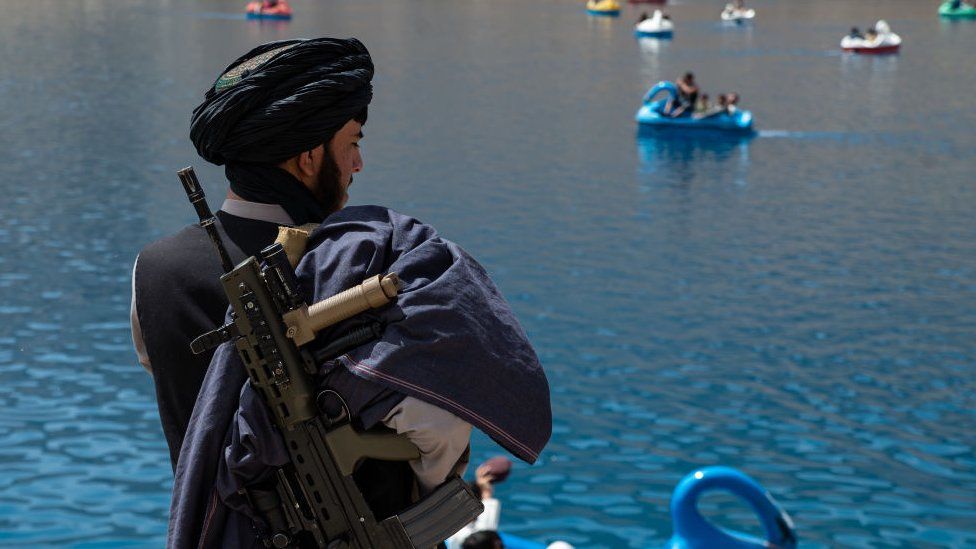 Getty Images
Getty ImagesThe Taliban have banned women from visiting the Band-e-Amir national park in the central Bamiyan province.
Afghanistan’s acting minister of virtue and vice, Mohammad Khaled Hanafi, said women had not been observing hijab inside the park.
He called on religious clerics and security agencies to forbid women from entering until a solution was found.
Band-e-Amir is a significant tourist attraction, becoming Afghanistan’s first national park in 2009.
It is a popular destination for families and the ban on women attending will prevent many from being able to enjoy the park.
However, Mr Hanafi said going to the park to sightsee “was not obligatory”, Afghan agency Tolo News reported.
The Bamiyan province is known for having a more relaxed culture than other parts of the country.
Religious clerics in Bamiyan said the women who were visiting the park and not following the rules were visitors to the area.
“There are complaints about lack of hijab or bad hijab, these are not Bamiyan residents. They come here from other places”, Sayed Nasrullah Waezi, head of the Bamiyan Shia Ulema Council told Tolo news.
Afghan MP Mariam Solaimankhil shared a poem she had written on X, formerly known as Twitter, about the ban and wrote “we’ll return, I’m sure of it”.
Fereshta Abbasi, of Human Rights Watch, noted women had been banned from visiting the park on Women’s Equality Day and wrote it was a “total disrespect to the women of Afghanistan”.
Meanwhile Richard Bennett, the UN Special Rapporteur on human rights in Afghanistan, asked why stopping women from visiting Band-e-Amir “is necessary to comply with Sharia and Afghan culture?”.
The Taliban have a history of implementing bans on women doing certain activities on what it insists is a temporary basis, including preventing them from attending schools in December 2022.
The ban on visiting the Band-E-Amir national park is the latest in a long list of activities that women have been prevented from doing since the Taliban returned to power in August 2021.
Most recently, the Taliban ordered hair and beauty salons in Afghanistan to shut and in mid-July stopped women from sitting the national university entrance exams.
Related Topics
-
-
14 August
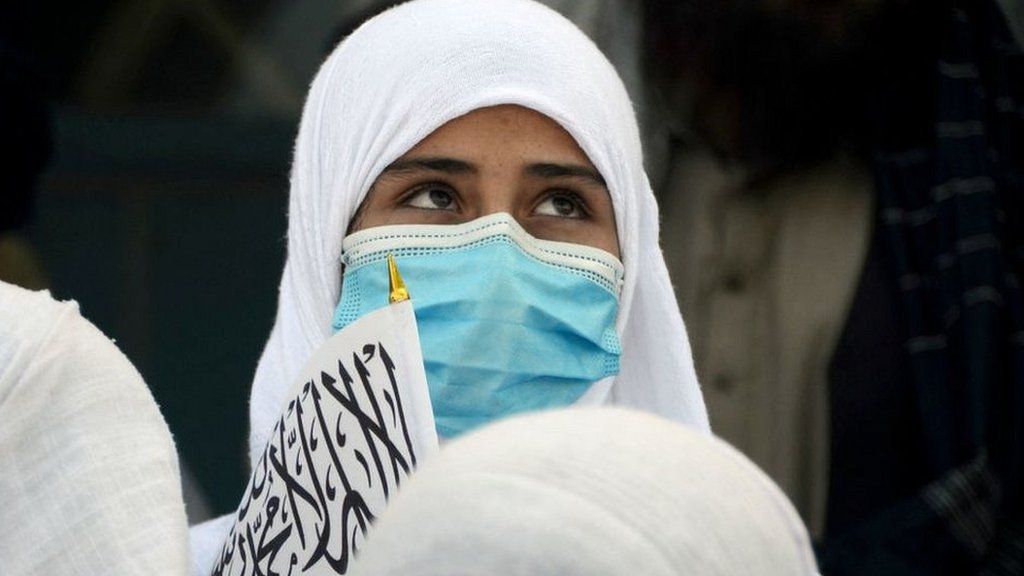
-
Thaksin can seek pardon despite opposition: prison boss
PUBLISHED : 27 Aug 2023 at 18:26
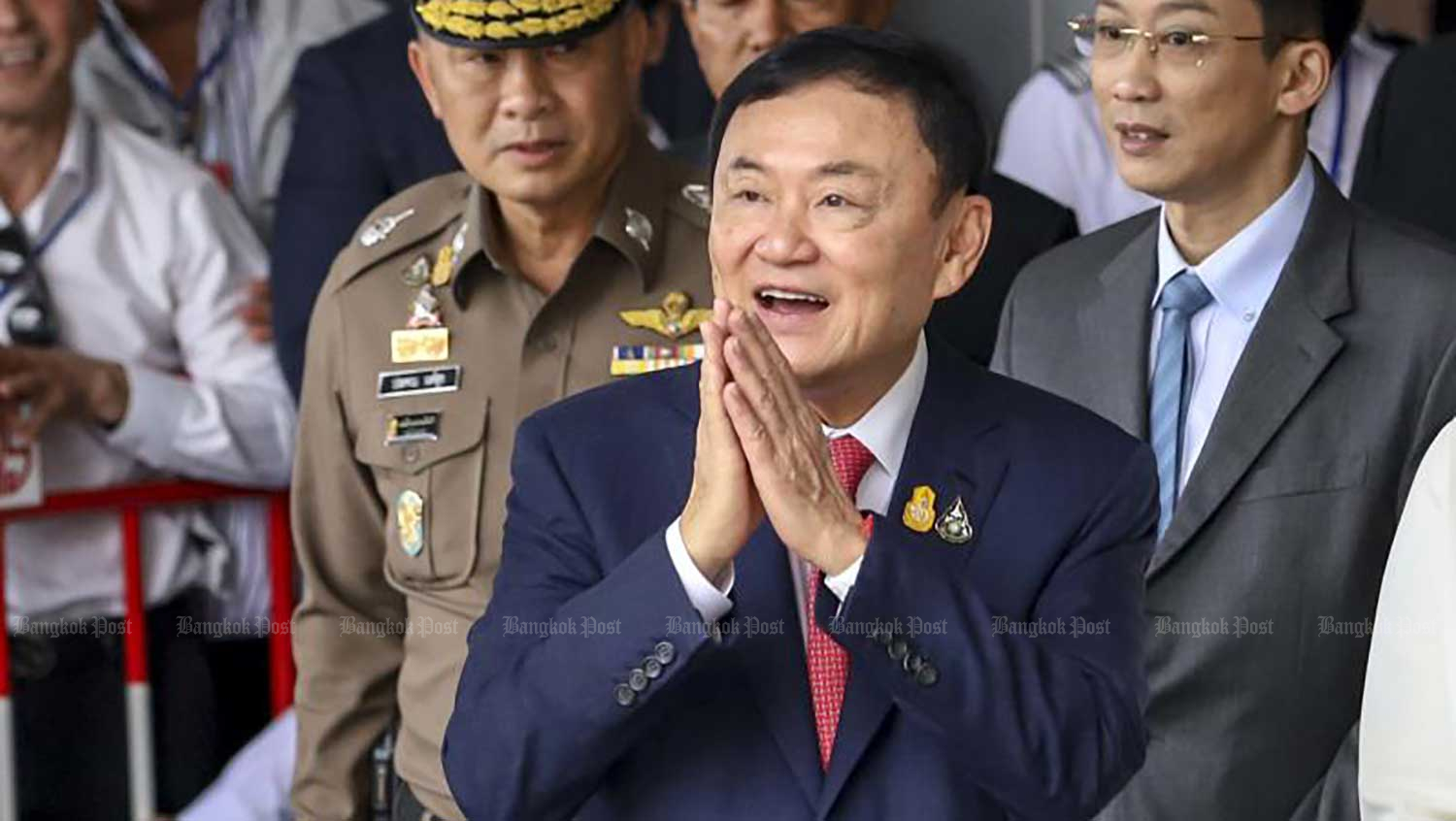
Corrections authorities insist former prime minister Thaksin Shinawatra can seek a royal pardon while opponents object to such a request, saying he was investigated for lese majeste.
Nastee Thongplad, governor of the Bangkok Remand Prison, said on Sunday that Thaksin, like all convicts, had the right to seek a royal pardon and he or his relatives would have to prepare adequate reasons to back the request.
The governor said an application for a royal pardon begins at the petitioner’s prison. Prison authorities will check the written petition and then forward it to the Department of Corrections.
Afterwards the petition will go to the Justice Ministry, the cabinet secretariat and finally the Office of His Majesty the King’s Principal Private Secretary, which will propose it for royal consideration.
There is a form for a royal pardon application and a petitioner will need to present other documents to show his past contributions and medical treatment records.
Mr Nastee also said that visitors would be allowed to see Thaksin at Police General Hospital from Monday onwards. The Department of Corrections is limiting the number of visitors to 10 per day. They would have to register beforehand and were prohibited from presenting any gifts or souvenirs to Thaksin, he said.
Meanwhile, the Thaipakdee Party said it objected to any application for a royal pardon for Thaksin because he had yet to be tried for alleged lese majeste.
According to the party, the army had accused Thaksin in the Criminal Court of defamation and violation of Section 112 of the Criminal Code (the lese majeste law). The court had accepted the case for trial in 2015 and issued a warrant for the arrest of Thaksin, who did not appeared at the court as ordered.
After 15 years of self-imposed exile, Thaksin returned to the country on Aug 22. The Supreme Court ordered his eight-year imprisonment for his previous and finalised legal cases.
On the first night of his stay at the Bangkok Remand Prison, corrections doctors determined that he had to be transferred to Police General Hospital because of his serious illnesses.
The management of Police General Hospital denied authorities had done any favours for Thaksin.
Fears linger over possibly ‘radioactive’ seafood from Japan
PUBLISHED : 27 Aug 2023 at 17:05
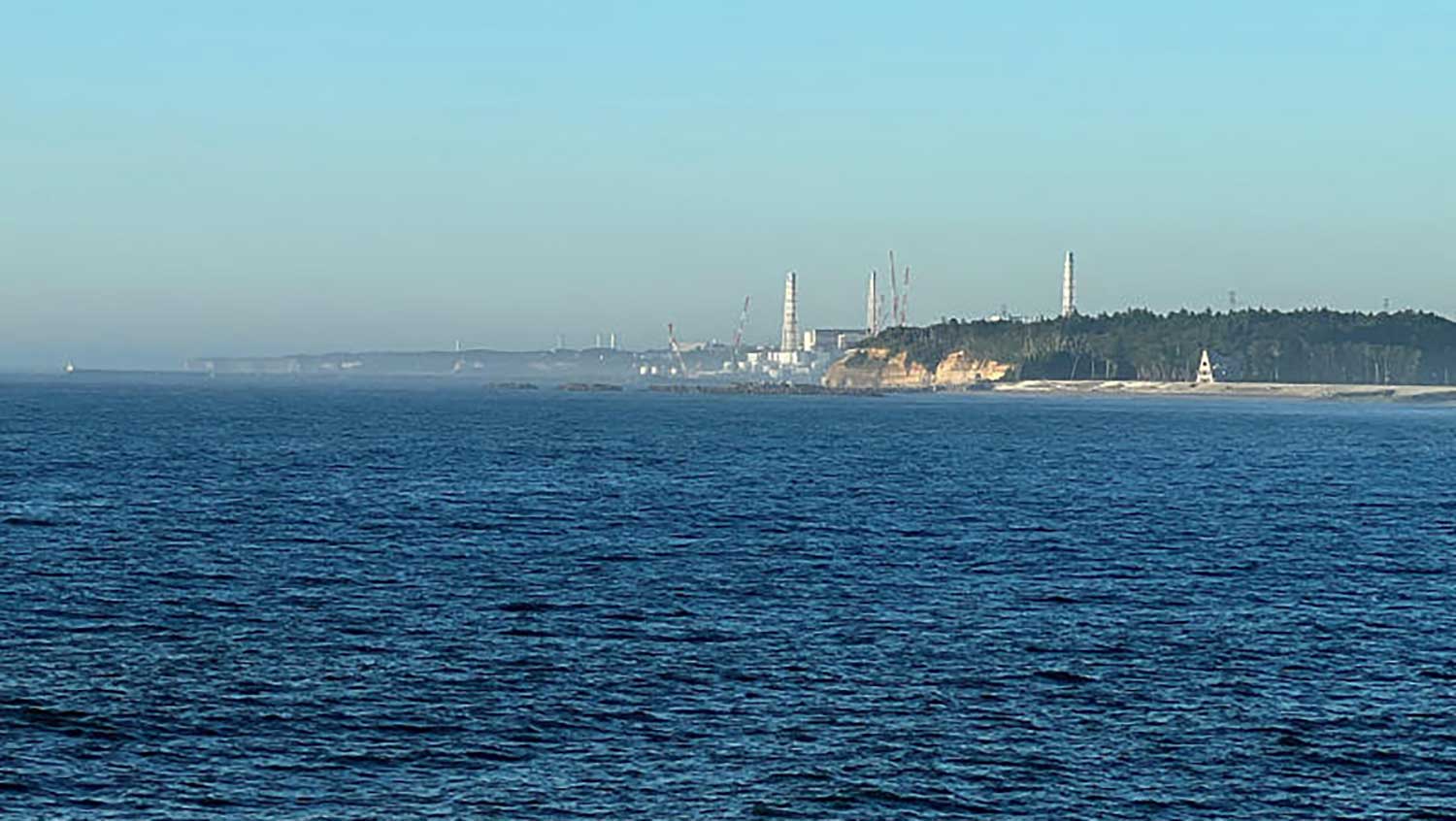
The Thailand Consumer Council (TCC) has asked the Food and Drug Administration (FDA) and the Department of Fisheries to take strict measures to screen seafood imported from Japan for fear it could be contaminated by a radioactive isotope.
The island country began releasing wastewater from the Fukushima Daiichi nuclear power plant into the ocean on Aug 24.
Panuchote Thongyang, chairman of the TCC’s sub-committee on food, drugs and health products, said on Sunday many countries, including Japan itself, have voiced concerns over the safety of the wastewater despite the green light from the International Atomic Energy Agency (IAEA), which said the released wastewater, which has been treated, meets world safety standards.
He said China, Hong Kong and South Korea have suspended imports of every form of marine product, but no Thai agency has announced any measures being taken to reduce safety risks despite the fact that the kingdom is a major importer of fishery products from Japan.
Mr Panuchote said radioactive substances from the Fukushima Daiichi nuclear power plant, struck by an earthquake over a decade ago, caused many cities to have been declared off-limits. Four years after the disaster, many of those cities were still restricted areas and some of them were completely abandoned. These indicated that the leaked radioactivity had spread to adjoining areas.
“I would like to call for the FDA and the Department of Fisheries to urgently take preventive measures, especially random checks of imported sea food both at checkpoints and at local markets,” he said. “Consumption of sea food contaminated with radioactivity could be hazardous to health.”
Mr Panuchote also called for the two agencies to publicise the measures they have taken to allay fears among consumers.
On Aug 24, the day Japan started releasing the wastewater, FDA deputy secretary-general Lertchai Lertwut said the agency held a meeting with the Department of Fisheries, the Office of Atoms for Peace and the Thailand Institute of Nuclear Technology to lay down measures to examine sea food imported from Japan.
He said consumers should not worry as all imported sea food products are subject to examination at FDA and Department of Fisheries checkpoints with support from narcotics suppression police and the Thailand Institute of Nuclear Technology.
Importation of products found contaminated with radioactive substances must be suspended, and the products returned or destroyed, Mr Lertchai said.
In fact, safety measures on fishery products from Japan have been taken since the Fukushima Daiichi nuclear power plant was struck by a tsunami in 2011. No radioactive traces beyond international standards have been found in those products, Mr Lertchai said.
The FDA deputy secretary-general said that in order to convince people of the safety of Japanese seafood, authorities will double the collection of samples for examination.
The vigilance will remain despite the change of government and the transition of the fiscal years, Mr Lertchai said.
Myanmar expels top Timor-Leste diplomat
BANGKOK: Myanmar’s junta on Sunday (Aug 27) ordered the expulsion of Timor-Leste’s top diplomat in the country over a meeting his government held with a banned shadow administration. The Southeast Asian nation has been locked in crisis since the military seized power in February 2021, ending a brief experiment with democracyContinue Reading
Motorcyclist killed after collision with Porsche
PUBLISHED : 27 Aug 2023 at 16:44

PATHUM THANI: A 25-year-old man was killed instantly when his motorcycle collided with a Porsche Cayenne car in Sam Khok district just before midnight on Saturday night.
Local police were informed of the accident on Pathum Thani-Bang Pahan Road in tambon Chiang Rak Yai at about 11.30pm on Saturday.
The dead man was identified as Thanawat Boonrat, a resident of tambon Bang Phud in Pathum Thani’s Muang district. His heavily damaged Honda Lead motorcycle was found nearby. Police did not find its licence plate.
Also at the scene was the brand new Porsche Cayenne with Bangkok plates. Police detained its Chinese owner, Jin Jin Lai, 34.
The late man’s mother Sophee Boonrat, 48, said he earlier told her he was going to take a shower and then visit her to eat cake on the occasion of her birthday. He lived with his wife, she added.
Before the crash, local patrol police were informed that a group of motorcyclists had gathered for a street race nearby. They sped away when police arrived, including the motorcyclist engaged in the fatal crash with the Porsche Cayenne.
China halves stamp duty on stock trades to boost flagging market
BEIJING: China halved the stamp duty on stock trading effective on Monday (Aug 28) in the latest attempt to boost the struggling market as a recovery sputters in the world’s second-biggest economy. The finance ministry said in a brief statement on Sunday it was reducing the 0.1 per cent duty onContinue Reading






